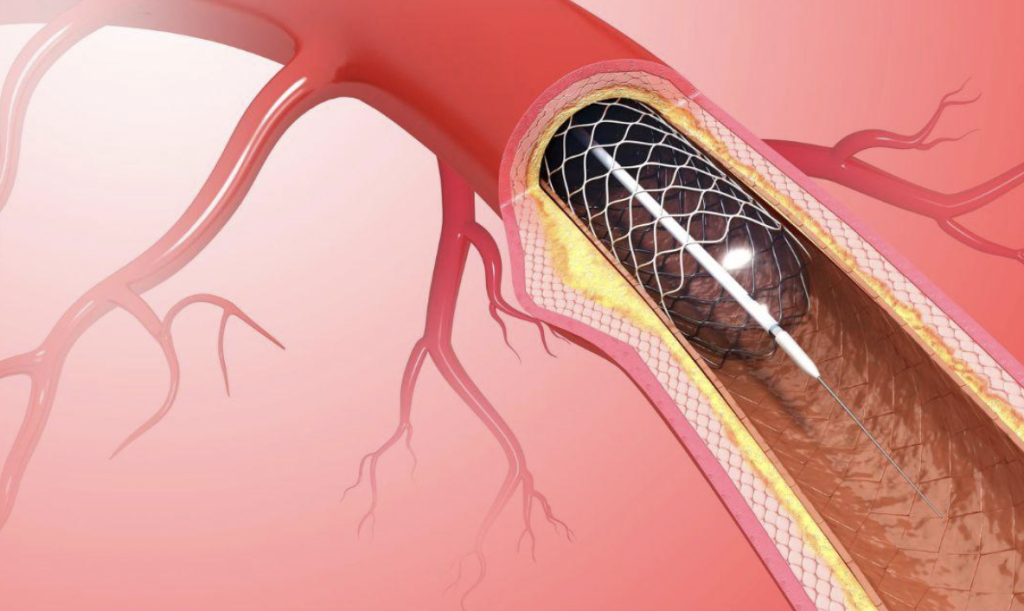A cardiologist is a medical doctor who specializes in diagnosing, treating, and preventing diseases of the heart and blood vessels. These cardiovascular specialists undergo extensive training to manage complex heart conditions. A cardiologist offers comprehensive care, including the management of conditions like coronary artery disease. Here’s more information on treatments for coronary artery disease:
Diagnosing
Heart disease is an umbrella term that encompasses a wide range of conditions affecting the heart. These can include heart rhythm problems (arrhythmias), heart defects you are born with (congenital heart defects), and diseases of the heart muscle. A common type of heart disease is coronary artery disease (CAD).
CAD develops when the major blood vessels that supply the heart with blood, oxygen, and nutrients become damaged or diseased. These major blood vessels are known as the coronary arteries. Because of a process called atherosclerosis, plaque builds up in the arteries, causing them to narrow. This narrowing of the arteries can reduce blood flow to the heart over time.
To diagnose CAD, a cardiologist will start by reviewing your medical history, assessing your risk factors, and performing a physical exam. Following this initial assessment, they may order several tests to get a clear picture of your heart’s health. These diagnostic tools may include:
- An Electrocardiogram: To record the heart’s electrical activity.
- An Echocardiogram: To create images of your heart using sound waves.
- A Stress Test: To see how your heart performs during physical activity.
- A CT Scan or A Cardiac Catheterization: In some cases, more advanced imaging may be necessary to view the arteries directly.
Treating
Once a diagnosis of coronary artery disease is confirmed, a cardiologist will develop a personalized treatment plan. The primary goals of treatment are to relieve symptoms, slow the progression of the disease, and reduce the risk of future cardiac events. Treatment approaches typically involve a combination of lifestyle changes, medications, and medical procedures.
Lifestyle Changes
Lifestyle modifications are a fundamental part of managing CAD. A cardiologist will provide guidance on heart-healthy habits, which often include adopting a balanced diet low in saturated fats and sodium, engaging in regular physical activity, and quitting smoking. Some other adjustments that may be recommended are:
- Manage stress effectively through relaxation techniques, meditation, or counseling to reduce strain on your heart.
- Maintain a healthy weight by balancing calorie intake and physical activity levels.
- Limit alcohol consumption to recommended guidelines to lower the risk of heart-related complications.
- Get adequate, restorative sleep each night to support overall heart health.
Medication Management Plans
Medications are also a cornerstone of CAD treatment. A cardiologist may prescribe various drugs to manage the condition. These can include cholesterol-modifying medications to lower cholesterol levels. Medication management plans may also include aspirin or other blood thinners to reduce the risk of blood clots. Beta-blockers can be recommended to slow the heart rate and lower blood pressure, or nitroglycerin can help relieve chest pain.
Surgical Options
For more significant blockages, a cardiologist might recommend a procedure to restore blood flow. Angioplasty and stenting involve threading a thin tube with a balloon to the blocked artery to widen it, often leaving a small mesh tube (stent) in place to keep it open. In cases of severe or multiple blockages, coronary artery bypass surgery may be suggested, which creates a new path for blood to flow around a blocked artery.
Following Up
Managing coronary artery disease is a long-term commitment that requires ongoing collaboration between you and your cardiologist. Regular follow-up appointments are fundamental for monitoring your condition, assessing the effectiveness of your treatment plan, and making any necessary adjustments. During these visits, your cardiologist will check your blood pressure, review your symptoms, and may order follow-up tests to track the progression of your condition. Consistent follow-up and adherence to your treatment plan can help manage symptoms and improve your overall quality of life.
Schedule an Appointment With a Cardiologist
Coronary artery disease is a serious condition that requires expert medical attention. If you are experiencing symptoms like chest pain, shortness of breath, or have risk factors for heart disease, promptly consult a specialist. A cardiologist can provide an accurate diagnosis and create a comprehensive management plan tailored to your specific health needs. Make an appointment today.
